Current US President, Joe Biden initially made efforts towards reducing tensions with Iran and reviving the Iran nuclear deal
Iran-US ties have witnessed a steady deterioration ever since the US withdrawal from the Iran nuclear deal 2015, also referred to as Joint Comprehensive Plan of Action JCPOA, during the Trump Administration in 2018. Current US President, Joe Biden initially made efforts towards reducing tensions with Iran and reviving the Iran nuclear deal. It would be pertinent to point out that the Biden administration had also turned a blind eye to Iran’s sale of oil, in violation of US sanctions, in the aftermath of the Russia-Ukraine war.
Iran’s violation of nuclear commitments made under JCPOA, supply of arms to Russia – during the Russia-Ukraine war and the current situation in the Middle East, where the Iran-Israel conflict could escalate further, has reduced the scope of reduction of tensions between Washington and Tehran. Biden also faced strong opposition domestically – especially from Republican policy makers – for his Iran policy. Donald Trump blamed Biden’s decision of releasing $6 billion for Iran for humanitarian purposes – in return for a prisoner swap – and relaxation of sanctions for the turmoil in the Middle East. The former US President said that the above decisions of the Biden administration were a blunder since they enabled Iran the space to provide financial assistance to Hamas (several other Republican lawmakers have criticised Biden’s Iran policy).
The Biden administration denied that it had actually released the funds and also blamed Trump’s Iran policy for pushing Iran towards accelerating its enriched uranium well beyond the limits set by the JCPOA. While commenting on sanctions imposed during his presidency, Joe Biden said: "During my Administration, the United States has sanctioned over 600 individuals and entities — including Iran and its proxies, Hamas, Hezbollah, the Houthis, and Kataib Hezbollah. And we will keep at it. I've directed my team, including the Department of the Treasury, to continue to impose sanctions that further degrade Iran's military industries."
With an eye on circumventing stringentUS sanctions, Iran has also begun to explore de-dollarisation or the reduction of dependence upon the US Dollar for trade. Iran entered the BRICS+ grouping in January 2024 and has signed an agreement for conducting trade in local currencies with Russia.
Amidst the tensions, there have been important back channels between Iran and Washington DC. In January 2024, Oman had hosted a back channel between US and Iran where senior negotiators from both sides were present. Even amidst the recent Iran-Israel tensions, Oman has tried to intervene. Iranian Foreign Minister Hossein Amirabdollahian had visited Muscat last month.
North Korean delegation’s visit to Iran
The recent visit of a North Korean delegation to Iran will only enhance tensions between Tehran and Washington DC. A delegation led by Yun Jung Ho, North Korea’s minister of external economic relations attended an Iranian expo in Tehran and discussed bilateral trade with Iranian government officials and explored potential avenues of cooperation with Iran’s private sector.
Russia-Iran-North Korea axis
Iran dismissed allegations that both countries were exploring cooperation in “missile programs''. North Korea and Tehran established diplomatic relations in 1973. During Iran’s war with Iraq in the 1980’s, North Korea provided support. The changing geopolitical situation in recent years has witnessed the strengthening of the Russia-Iran-North Korea axis. In 2020, North Korea had proposed that Iran’s Trade Promotion Organization and the North Korean Trade Development Committee establish a Joint Trade Committee. In September 2023, North Korea’s leader Kim Jong Un had visited Russia’s Far East and met with Russian President, Vladimir Putin at President Vladimir Putin of Russia at the Vostochny Cosmodrome. Washington dubbed Putin’s meeting with Kim Jong Un as an “act of desperation”.
Kim Jong Un on his part offered Pyongyang’s support for Moscow in what he described as the latter’s “sacred fight” against hegemonic forces (the North Korean leader was alluding to the west).North Korea, like Iran, has been accused of providing support to Russia during the Russia and Ukraine war. Pyongyang has also supported Iran during the Middle East conflict and categorically blames Israel for the current tensions in the Middle East. South Korea has stated that Hamas was using North Korean weapons against Israel.
In the current economic landscape, where all three are facing sanctions, they are bound to explore economic cooperation. The west, especially the US, has concerns regarding strategic cooperation between all three countries. While commenting on potential nuclear cooperation between North Korea and Iran, the US State Department expressed its concern and also said that it was keeping a close watch on military cooperation between both sides.
In conclusion, Iran’s growing cooperation with North Korea is a strong reiteration of Tehran having clearly moved away from the west. The west would be clearly concerned about Iran’s growing proximity with not just Beijing, but Russia and North Korea and ties between Washington and Tehran are only likely to go downhill as a result. While revival of the JCPOA now seems unlikely, and tensions between Washington and Tehran are unlikely to reduce given the current situation in the Middle East, the latter would be well advised to keep back channels with Tehran open.
The author is a policy analyst and faculty member at the Jindal School of International Affairs, OP Jindal Global University, Sonipat.
(Disclaimer: The views expressed above are the author's own and do not reflect those of DNA)
![submenu-img]() This film made Dharmendra star, was originally offered to Sunil Dutt, actor suffered near-death injury, movie earned...
This film made Dharmendra star, was originally offered to Sunil Dutt, actor suffered near-death injury, movie earned...![submenu-img]() Sumatra Slim Belly Tonic Scam (Tested For 90 Days) Does This Blue Tonic Supplement Work For Weight Loss?
Sumatra Slim Belly Tonic Scam (Tested For 90 Days) Does This Blue Tonic Supplement Work For Weight Loss?![submenu-img]() Sugar Defender Scam (60 Days Of Testing) What Users Are Saying About This Blood Sugar Support Formula
Sugar Defender Scam (60 Days Of Testing) What Users Are Saying About This Blood Sugar Support Formula![submenu-img]() FitSpresso Scam (I've Used It For 180 Days) Are These Weight Loss Pills Effective?
FitSpresso Scam (I've Used It For 180 Days) Are These Weight Loss Pills Effective?![submenu-img]() Understanding Legal Entity Identifiers: The Advantages and Benefits
Understanding Legal Entity Identifiers: The Advantages and Benefits![submenu-img]() Meet man who almost failed in class 12, IIT alumnus, who quit high-paying job at Infosys for UPSC exam, secured AIR...
Meet man who almost failed in class 12, IIT alumnus, who quit high-paying job at Infosys for UPSC exam, secured AIR...![submenu-img]() Meghalaya Board 10th, 12th Result 2024: MBOSE SSLC, HSSLC Arts results to be declared on this date
Meghalaya Board 10th, 12th Result 2024: MBOSE SSLC, HSSLC Arts results to be declared on this date![submenu-img]() Campus placement: Over 7700 students of IIT 2024 batch yet to get jobs, finds RTI
Campus placement: Over 7700 students of IIT 2024 batch yet to get jobs, finds RTI![submenu-img]() IIT-JEE topper joins IIT Bombay with AIR 1, skips placement drive, now working as a...
IIT-JEE topper joins IIT Bombay with AIR 1, skips placement drive, now working as a...![submenu-img]() IIT graduate builds Rs 1057990000000 company, leaves to get a job, now working as a….
IIT graduate builds Rs 1057990000000 company, leaves to get a job, now working as a….![submenu-img]() DNA Verified: Is CAA an anti-Muslim law? Centre terms news report as 'misleading'
DNA Verified: Is CAA an anti-Muslim law? Centre terms news report as 'misleading'![submenu-img]() DNA Verified: Lok Sabha Elections 2024 to be held on April 19? Know truth behind viral message
DNA Verified: Lok Sabha Elections 2024 to be held on April 19? Know truth behind viral message![submenu-img]() DNA Verified: Modi govt giving students free laptops under 'One Student One Laptop' scheme? Know truth here
DNA Verified: Modi govt giving students free laptops under 'One Student One Laptop' scheme? Know truth here![submenu-img]() DNA Verified: Shah Rukh Khan denies reports of his role in release of India's naval officers from Qatar
DNA Verified: Shah Rukh Khan denies reports of his role in release of India's naval officers from Qatar![submenu-img]() DNA Verified: Is govt providing Rs 1.6 lakh benefit to girls under PM Ladli Laxmi Yojana? Know truth
DNA Verified: Is govt providing Rs 1.6 lakh benefit to girls under PM Ladli Laxmi Yojana? Know truth![submenu-img]() AI models set goals for pool parties in sizzling bikinis this summer
AI models set goals for pool parties in sizzling bikinis this summer![submenu-img]() In pics: Aditi Rao Hydari being 'pocket full of sunshine' at Cannes in floral dress, fans call her 'born aesthetic'
In pics: Aditi Rao Hydari being 'pocket full of sunshine' at Cannes in floral dress, fans call her 'born aesthetic'![submenu-img]() Jacqueliene Fernandez is all smiles in white shimmery bodycon at Cannes 2024, fans call her 'real Barbie'
Jacqueliene Fernandez is all smiles in white shimmery bodycon at Cannes 2024, fans call her 'real Barbie'![submenu-img]() AI models show bikini style for perfect beach holiday this summer
AI models show bikini style for perfect beach holiday this summer![submenu-img]() Laapataa Ladies actress Chhaya Kadam ditches designer clothes, wears late mother's saree, nose ring on Cannes red carpet
Laapataa Ladies actress Chhaya Kadam ditches designer clothes, wears late mother's saree, nose ring on Cannes red carpet![submenu-img]() DNA Explainer: Why was Iranian president Ebrahim Raisi, killed in helicopter crash, regarded as ‘Butcher of Tehran’?
DNA Explainer: Why was Iranian president Ebrahim Raisi, killed in helicopter crash, regarded as ‘Butcher of Tehran’?![submenu-img]() DNA Explainer: Why did deceased Iranian President Ebrahim Raisi wear black turban?
DNA Explainer: Why did deceased Iranian President Ebrahim Raisi wear black turban?![submenu-img]() Iran President Ebrahim Raisi's death: Will it impact gold, oil prices and stock markets?
Iran President Ebrahim Raisi's death: Will it impact gold, oil prices and stock markets?![submenu-img]() Haryana Political Crisis: Will 3 independent MLAs support withdrawal impact the present Nayab Saini led-BJP government?
Haryana Political Crisis: Will 3 independent MLAs support withdrawal impact the present Nayab Saini led-BJP government?![submenu-img]() DNA Explainer: Why Harvey Weinstein's rape conviction was overturned, will beleaguered Hollywood mogul get out of jail?
DNA Explainer: Why Harvey Weinstein's rape conviction was overturned, will beleaguered Hollywood mogul get out of jail?![submenu-img]() This film made Dharmendra star, was originally offered to Sunil Dutt, actor suffered near-death injury, movie earned...
This film made Dharmendra star, was originally offered to Sunil Dutt, actor suffered near-death injury, movie earned...![submenu-img]() Sanjay Leela Bhansali breaks silence on Sharmin Segal's performance in Heeramandi: She kept saying, 'Mama, I will...'
Sanjay Leela Bhansali breaks silence on Sharmin Segal's performance in Heeramandi: She kept saying, 'Mama, I will...'![submenu-img]() 'To my surprise...': Neena Gupta says she is amazed as everyone from different backgrounds loves Panchayat
'To my surprise...': Neena Gupta says she is amazed as everyone from different backgrounds loves Panchayat![submenu-img]() Worst Indian film ever ended actor's career, saw court cases; it's not Jaani Dushman, Adipurush, RGV Ki Aag, Himmatwala
Worst Indian film ever ended actor's career, saw court cases; it's not Jaani Dushman, Adipurush, RGV Ki Aag, Himmatwala![submenu-img]() Meet director, was thrown out of film for advising Salman Khan, gave flops; later made 6 actors stars with just one film
Meet director, was thrown out of film for advising Salman Khan, gave flops; later made 6 actors stars with just one film![submenu-img]() Old video resurfaces: Hippo attempts zoo breakout, gets slapped by security guard
Old video resurfaces: Hippo attempts zoo breakout, gets slapped by security guard![submenu-img]() Mysterious pillars of light in sky spark alien speculation, know what they are
Mysterious pillars of light in sky spark alien speculation, know what they are![submenu-img]() Shaadi.com's innovative dowry calculator garners social media praise, here's why
Shaadi.com's innovative dowry calculator garners social media praise, here's why![submenu-img]() Viral video: Woman gracefully grooves to Aditi Rao Hydari’s Saiyaan Hatto Jaao from Heeramandi, watch
Viral video: Woman gracefully grooves to Aditi Rao Hydari’s Saiyaan Hatto Jaao from Heeramandi, watch![submenu-img]() Know about Travancore royal family that controls treasure of the wealthiest temple on Earth
Know about Travancore royal family that controls treasure of the wealthiest temple on Earth










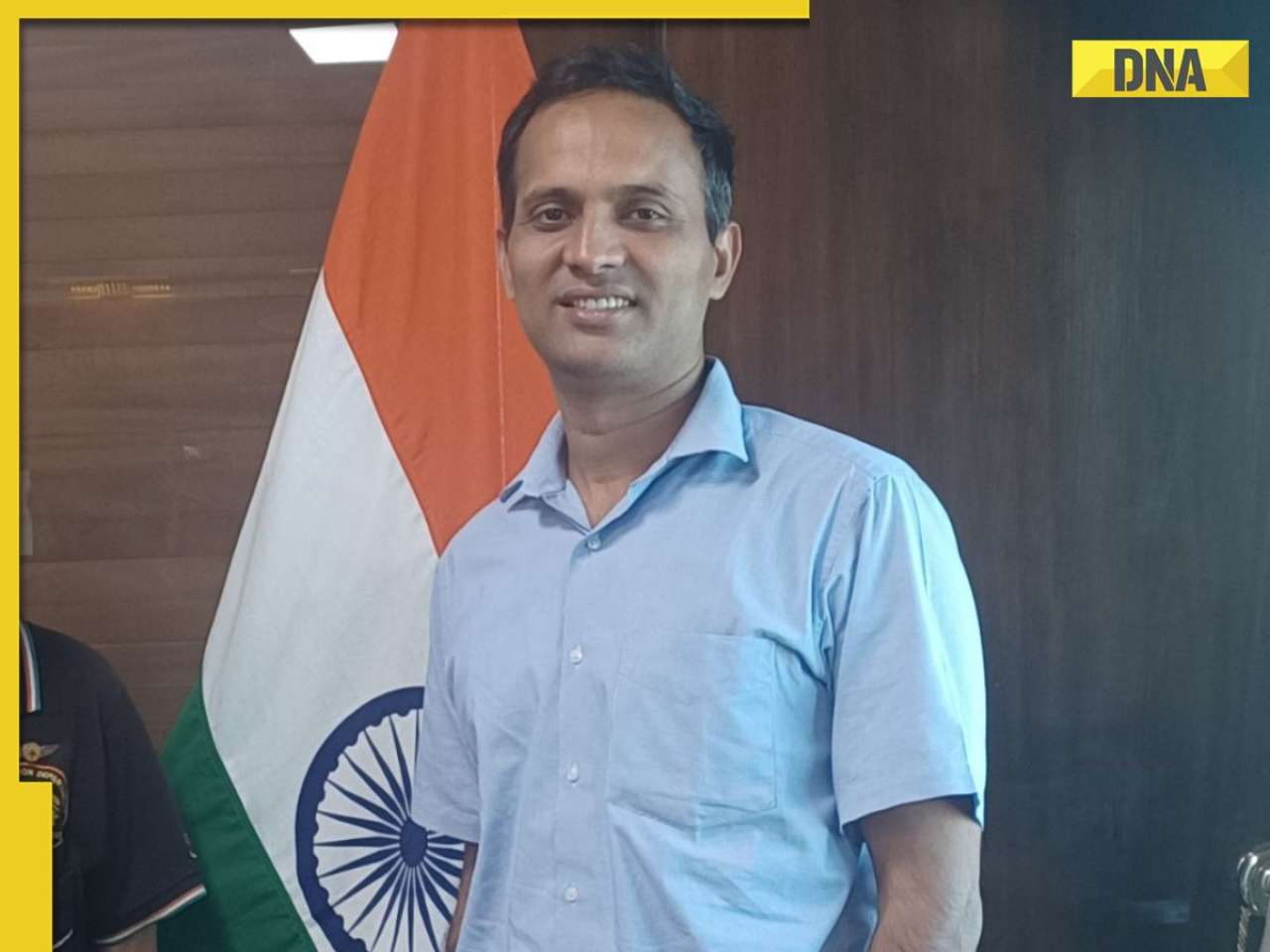
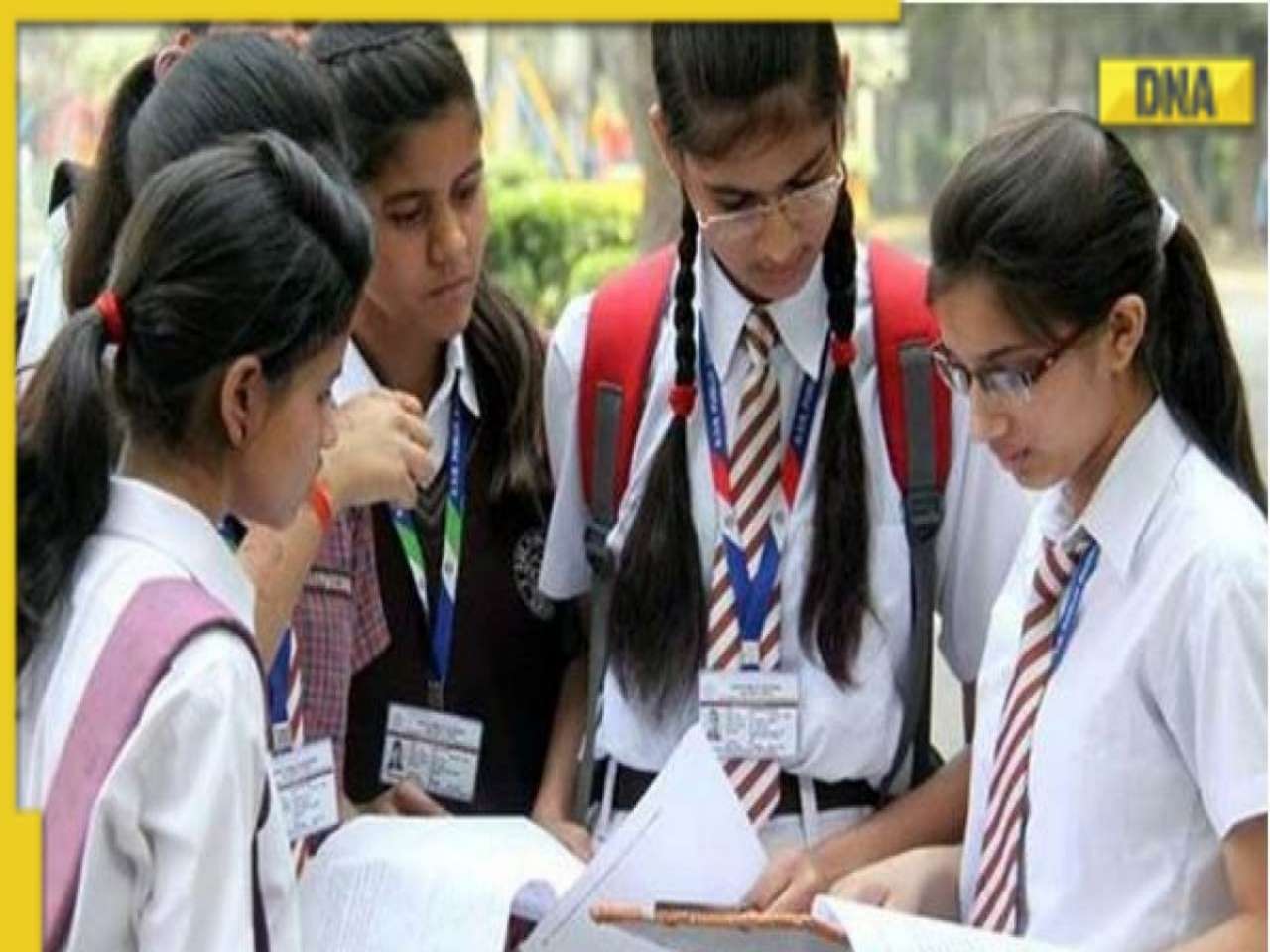

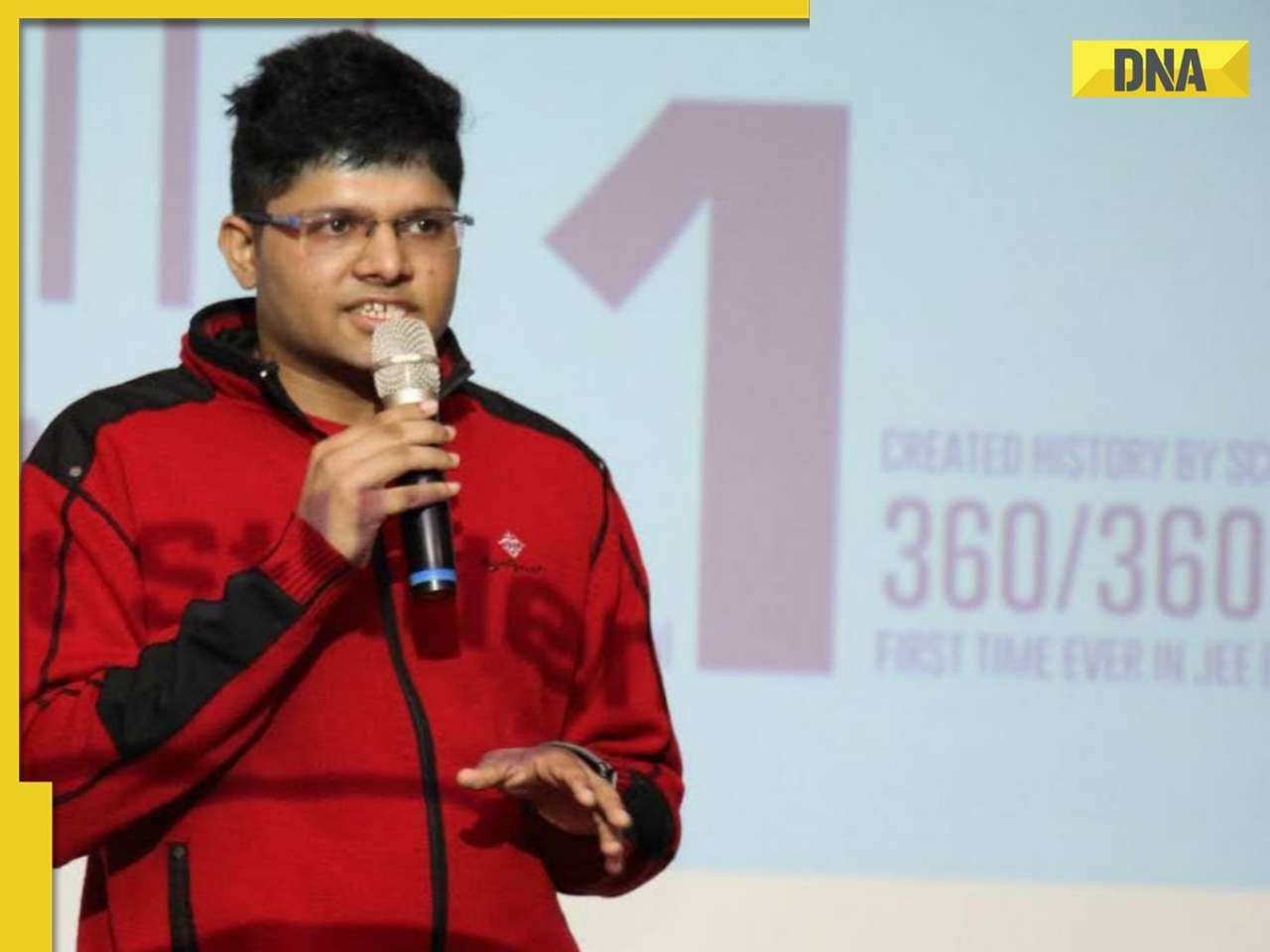

















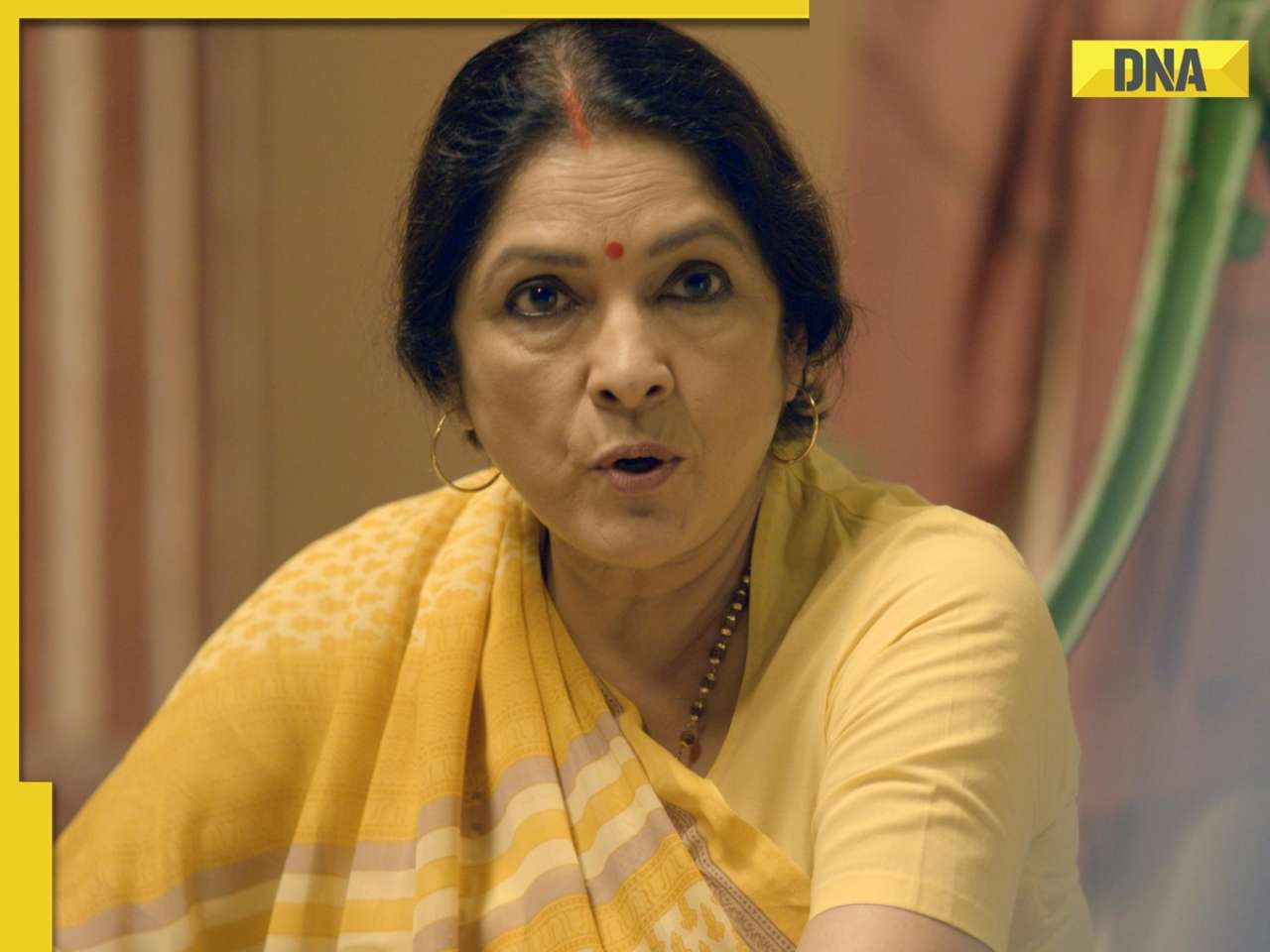


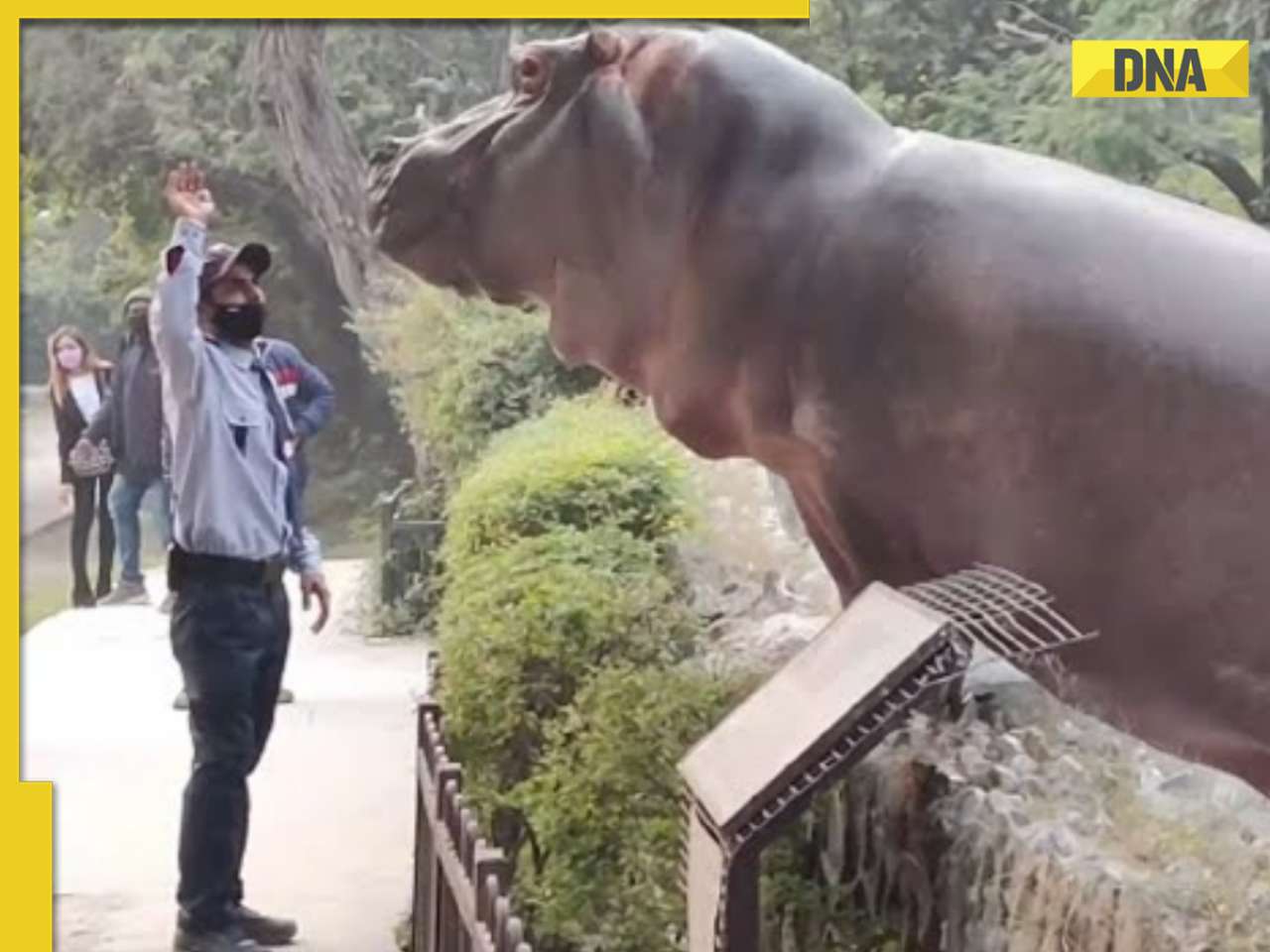
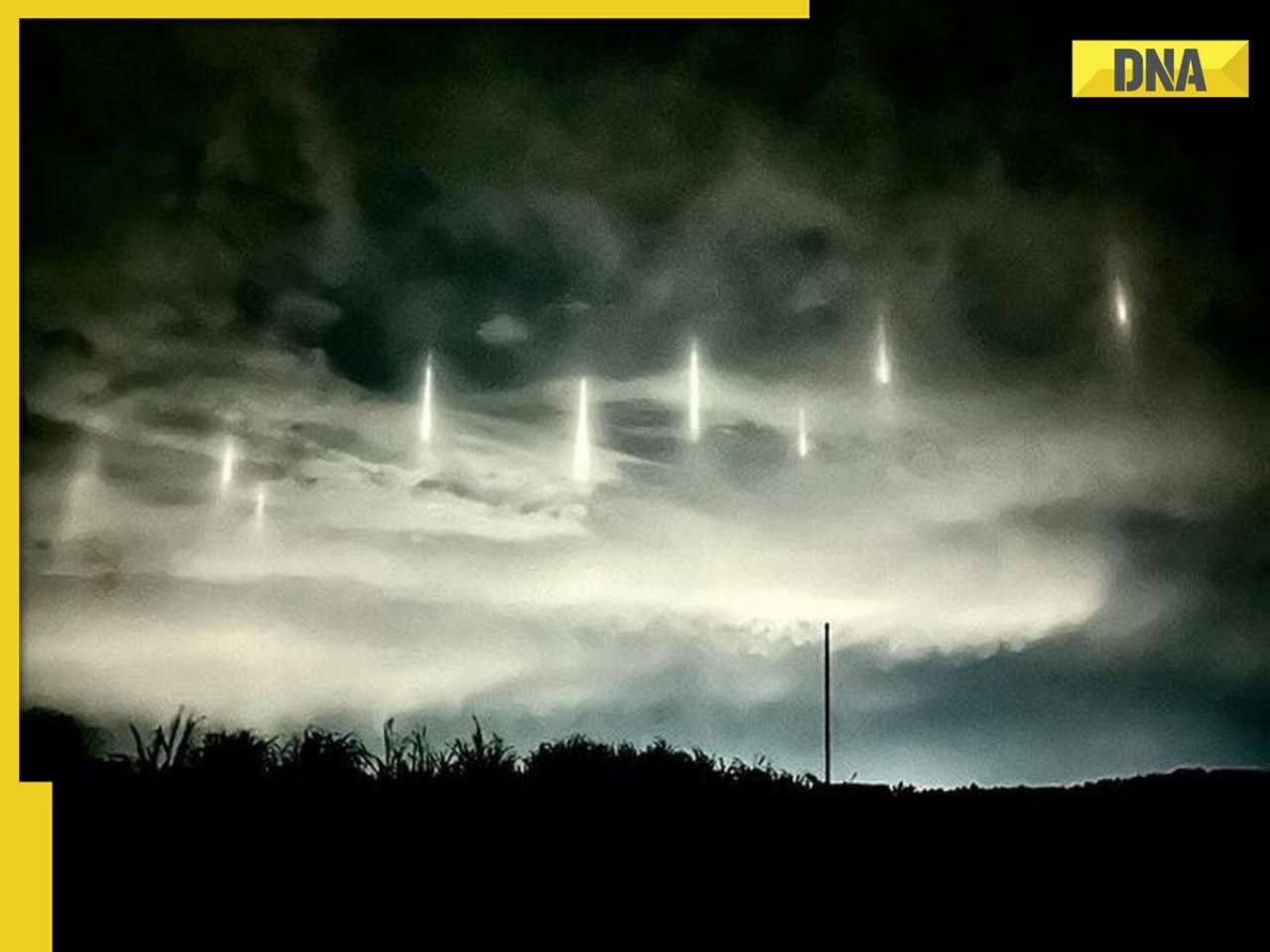




)

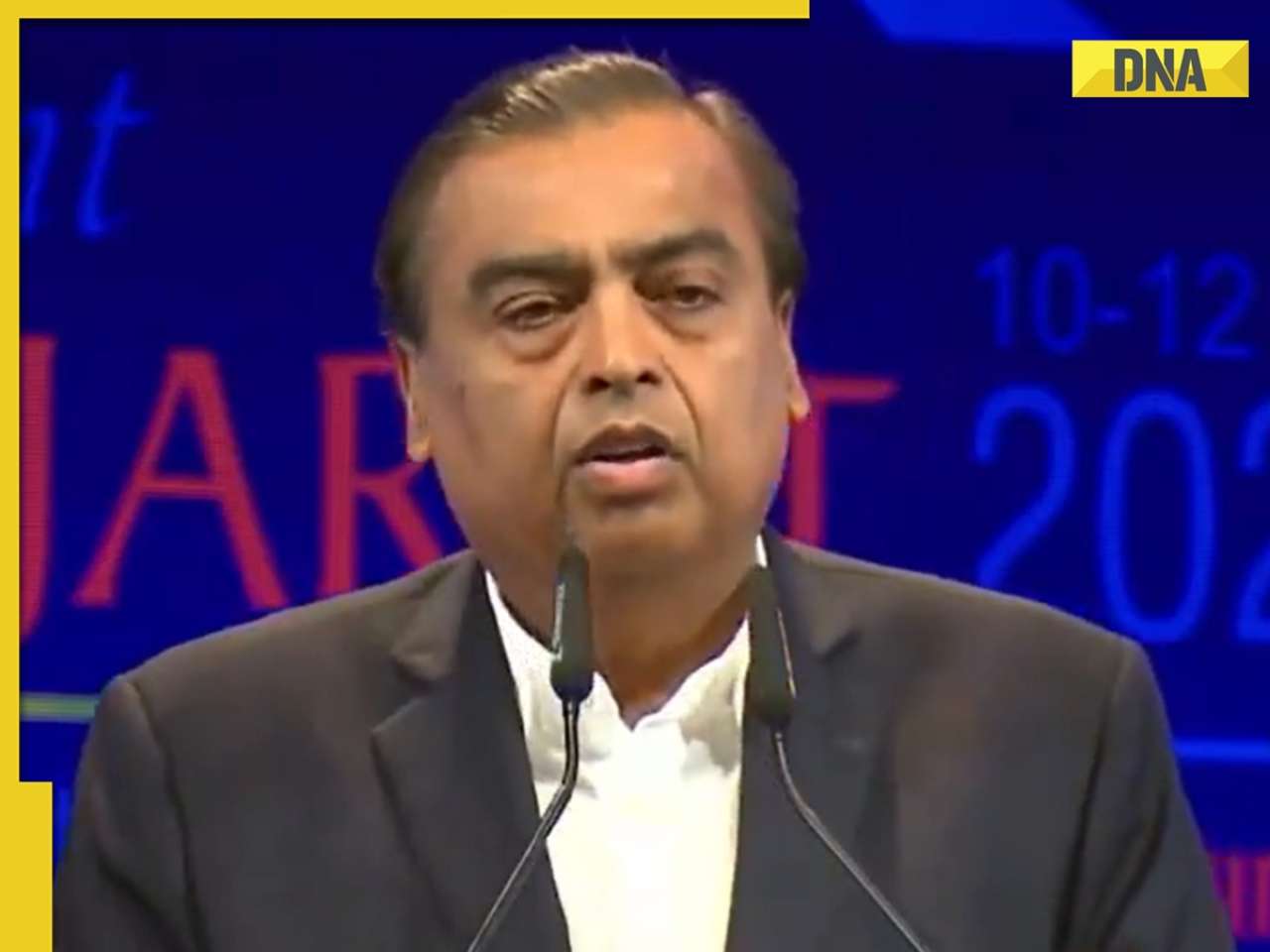
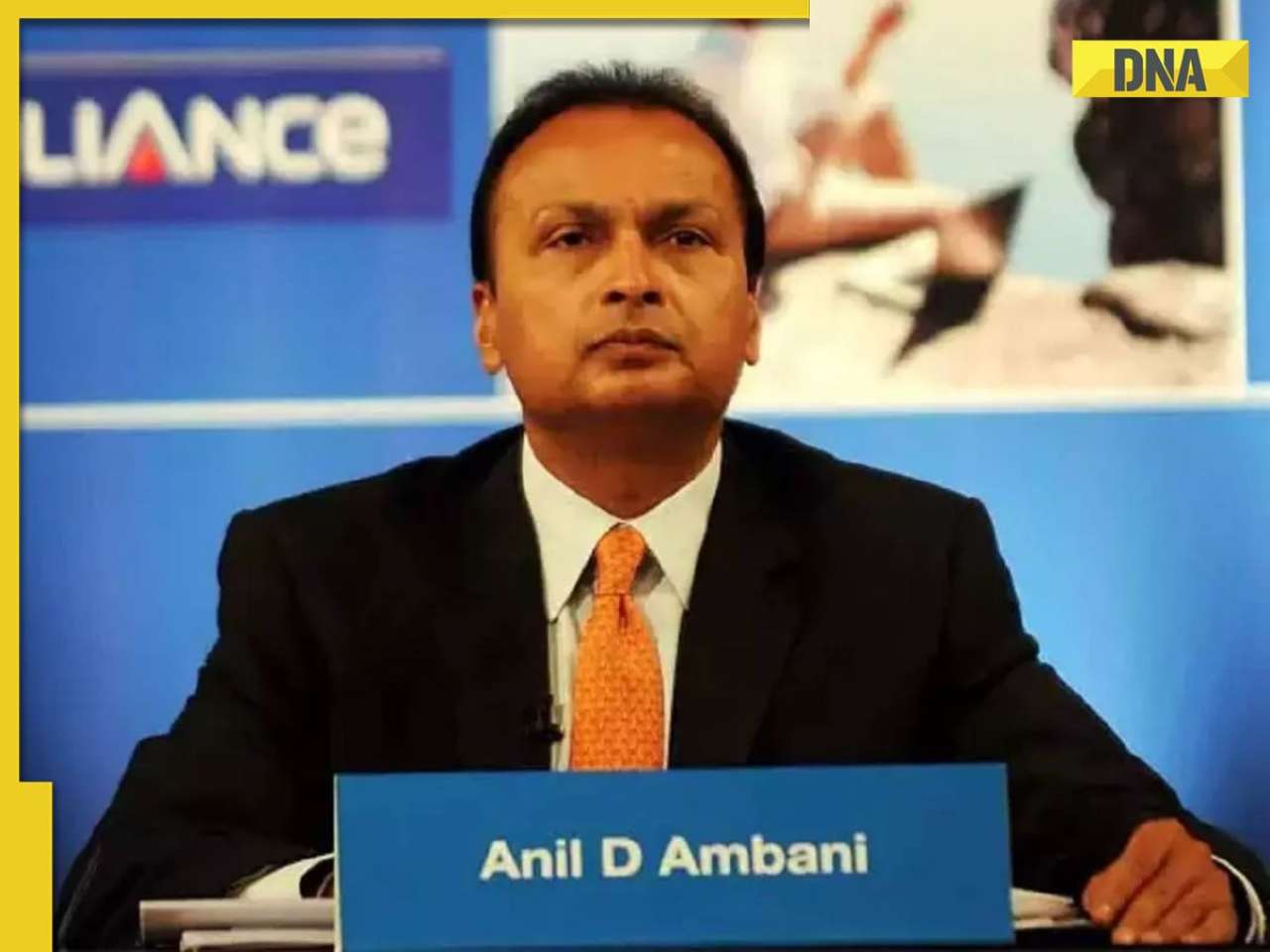















)
)
)
)
)
)